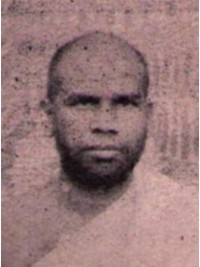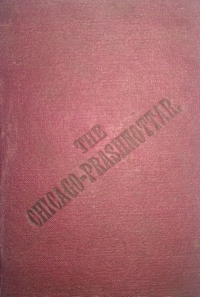77. Question:
What is the highest achievement of Dharma and what are the characteristics of Dharma?
Answer:
The highest achievement of Dharma consists in lifting man ultimately to the highest position of a Siddha or God after it has extinguished his various physical and mental afflictions consequent upon birth and death. The characteristics of Dharmi are ten:
- human life,
- birth in a civilized country,
- noble family,
- long life,
- possession of complete five senses,
- wisdom,
- good health,
- contact of a true teacher,
- hearing of the noble teaching preached by God free from eighteen faults, and
- belief in the above said teaching and acting thereupon.
78. Question:
What are the ways of worship and observance of Dharma according to different religions?
Answer:
The worship according to Jains has already been described above in connection with the eightfold mode of worship. There are two modes of Dharma or duty - the duty of a householder and that of a recluse. First - take the duty of a house holder.
A householder ought always to worship God three times a day, ought not to injure visible animate objects, to speak falsehood, to commit serious theft, and to have sexual intercourse with another's wife, ought to limit a desire for possession, regulate his going abroad, avoid taking 22 kinds of non-eatables such as meat, strong drink etc. and 32 kinds of anant-kaya, ought to avoid (so far as practicable) 15 forms of bad business and 4 kinds of undesirable injuries, ought to observe devotion for an hour putting on clean clothes, whenever he gets an opportunity to do so, and give up all kinds of vicious acts, remember the qualifications of panch parmeshti, acquire education, observe 14 vows every day, abstaining from indulging in 4 things viz. (1) taking food, (2) beautifying body, (3) sexual intercourse and (4) business, on the two 8th, one 5th, loth and 30th days of a month etc. ought to lead the life of a sādhu (recluse) by doing Dharma, meditating, remembering the qualifications of panchpermeshti etc. for 24 hours, i. perform what is called poshad karma. He ought to give alms to a deserving person, to the needy and also to the persons in trouble, carry on business according to rules of justice. This is a short description of the mode of a householder's life according to Jainism. Secondly I briefly deal with the duty of a recluse.
A sddhu - a recluse ought not to injure any life, ought not to speak any kind of falsehood, ought not to commit any kind of theft, ought not to indulge in any kind of sexual intercourse, and ought not to have a desire for anything. He should entirely abstain from these five things. He ought not to stay anywhere considering it to be his own place, ought to take in begging madhukari bhihshā free from 42 defects, ought to regard a friend and an enemy, gold and stone, woman and grass equally, he should neither love nor hate anything. He ought to be prepared to bear 22 kinds of afflictions and 16 troubles which befall him. He ought to desire neither life nor fear death. He ought to check the five sexual desires. He ought to be free from anger, pride, attachment, avarice. He ought to observe 18000 characteristics of shilanga (chastity) This is the mode in which a monk ought to lead his life.
The other religions describe many methods which are the figments of fancies; we need not therefore describe them.
79. Question:
What are the true and real distinguishing marks of a Dharmic (pious) life and worldly life?
Answer:
The true and real marks of worldly life are as follows:
One who earns money by lawful means9 admires a good act, marries in the family of a man of a different gotra equal to him in position, character etc., fears vicious acts, does not do anything against the fashion of his country, does not speak ill of any one, more particularly does not inhabit in too public or too private a place, lives in the neighbourhood of a good person, does not live in the house which has several passages for egress and ingress, lives in the company of a religious man, serves his parents, does not live at a place which is the source of dispute, does not do that work which is considered bad by the public, spends according to his income, lives up to his means, is possessed of the eight attributes of intelligence, always bears dharma, does not take food again until the previous food has been digested, eats contentedly at the proper time, practises virtue and has recourse to worldly pleasure and business in a way not detrimental to any of these three, supplies according to his means food, clothes etc. to a holy man or a poor man who comes to his house, does not go against the propriety of time and place, does every work to the best of his ability, worships, serves one who follows great vows and is a learned man, maintains those who deserve support, is a prudent and farsighted man who knows much and is always grateful to him who has done anything for him, is loved by all, is submissive, merciful, is of agreeable nature, is doing good to others, is resolute in giving up the company of 6 inner enemies viz., passion, anger, avarice, pride, mada and joy, controls the contact of the senses with their objects. One who observes the aforesaid 35 things is said to truly possess all the attributes of a householder. The attributes of a Dharmic person have already been described under the head of duties of householder and saint.
 Shrimat Vijyasandsuri
Shrimat Vijyasandsuri
